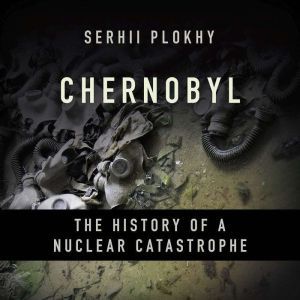Quotes
"A masterful account of how the USSR's bureaucratic dysfunction, censorship, and impossible economic targets produced the disaster and hindered the response."—New York Review of Books
"Gripping, meticulously researched...[Mr. Plokhy] mercilessly chronicles the absurdities of the Soviet system and the arrogance of its apparatchiks. But the fact that he grew up fewer than 500 kilometers south of Chernobyl probably accounts for his vividly empathetic descriptions of the people on the ground-the plant managers and employees, the firefighters, soldiers and others-who risked their lives to contain the damage."—Wall Street Journal
"The bare outline of the Chernobyl fire and the Soviet silence have been well covered...Mr. Plokhy, who directs the Ukrainian Research Institute at Harvard, adds much detail to the...construction that caused the failure, and the false assignment of blame to operating engineers...[His] most telling disclosures deal with how the Soviet subterfuges played a major role in Ukraine's decision to become an independent nation once the Soviet Union disintegrated."—Washington Times
"A lucid account of how the Soviet mania for nuclear power combined with endemic shoddiness in the industrial sector and near-paranoid habits of state secrecy led to the 1986 disaster...The most comprehensive and convincing history of Chernobyl yet to appear in English."—Financial Times
"The first comprehensive history of the Chernobyl disaster...here at last is the monumental history the disaster deserves."—Julie McDowall, Times
"A work of deep scholarship and powerful stroytelling. Plokhy is the master of the telling detail."—Victory Sebestyen, Sunday Times
"Compelling...Plokhy's well-paced narrative plunges the reader into the sweaty, nervous tension of the Chernobyl control room on the fateful night when human frailty and design flaws combined to such devastating effect."—Guardian
"Plokhy's book...sustains a tone of thoughtful observation that is neither too detached nor heavily invested in a particular agenda... [He] delves deeper into the political fallout of Chernobyl, which played a significant role in the break-up of the Soviet Union."—New Statesman
"Haunting...Plokhy's...voice is humane and inflected with nostalgia. His Chernobyl and Prypiat emerge vividly-as perhaps all disaster-afflicted cities must-as shattered idylls."—Spectator
"Plokhy recounts the circumstances of the accident and its aftermath in painstaking detail...He tells the story with great assurance and style...A fierce and at times personal indictment of the ideology, bureaucracy and overconfidence of the Soviet system, as well as a strident condemnation of all modern states that continue to pursue military or economic objectives to the detriment of their populations and the environment."— Literary Review


![]()

